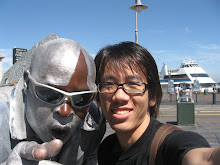languages probably started as speech, maybe first to grammar, but eventually for many to the written. maybe even before it became written, the concept of the breakdown of a word was already created in our heads.
how do we classify english as alphabet based and japanese as syllabary based if not for the written forms (or even the adoption of alphabets to explain the sounds of a japanese minimal sound, as we also do so when we written the pin yin of mandarin)?
today i am thinking about English, since it is the language i use most. it seems that the written form of it was transcribed phonetically. we assigned "a" to a certain sound (as it turns out, we have more than one sound assigned to "a" as we have "air" for the first "a" in "Africa", and "ahh" for the last "a". In "Goldman", it is "err" and there wil be many more). So maybe i just contradicted myself. Did we derive "a" phonetically? if we did, we jumped too far ahead, because later we would break it down using tools like the International Phonetic Alphabet. those alphabets are greatly reduced in ambiguity.
so, why don't we spell phonetically and write with IPA alphabets? it it just because we have already a strong writing system in place? Where did this alphabet system come from?
What is more concerning is this. What if we did create the alphabets phonetically? What if we has decided "rock" would be spelt "rock" because we managed to break down the word we spoke into 4 sounds (r, o, c, k) and we created the spelling? maybe we were not smart enough as we seem to be now then and did not realize that we had ambiguity in our pronunciation of our primitive alphabets. why does IPA use 3 alphabets? was "ck" considered one sound then and now considered one under a new symbol used in the IPA?
english surely isn't a great example because it's derived from older roots like latin right? or greek? or both and more probably. why, in english and other languages (for now i can only think on alphabet based ones and not others like Chinese) do we have a spelling that does not immediately show the pronunciation? I had learnt to read from those alphabets. why do we have silent alphabets? perhaps we simplified languages over the centuries too much (which makes it less complex though, surely?). how do we relate spelling and pronunciation now?
maybe...the alphabet isn't as strong an influence as the smaller words we had come to learn through the alphabets and then adjusted in terms of sounds. Like "work", pronounced (by me at least, i am quite sure same for most others to consider this the 'right' version) "werk". so maybe we used the 4 alphabets at first to make "werrr...orrr....rrrr....kkhh"..."woorrrkh"..."workh" and then we decided it would be "werk". and so now, "working" is "werking", "workplace" is "werkplace".....then...."world" extracted "wor" as "wer" and made "world" into "werld".....or do you say it some other way? maybe..."werl"? and so a big bunch of strange rules appearing almost with some and no logic took over everything.
anyway, since this is just academic....i can find more info online when i have the time.
Monday, October 6, 2008
Subscribe to:
Post Comments (Atom)

No comments:
Post a Comment